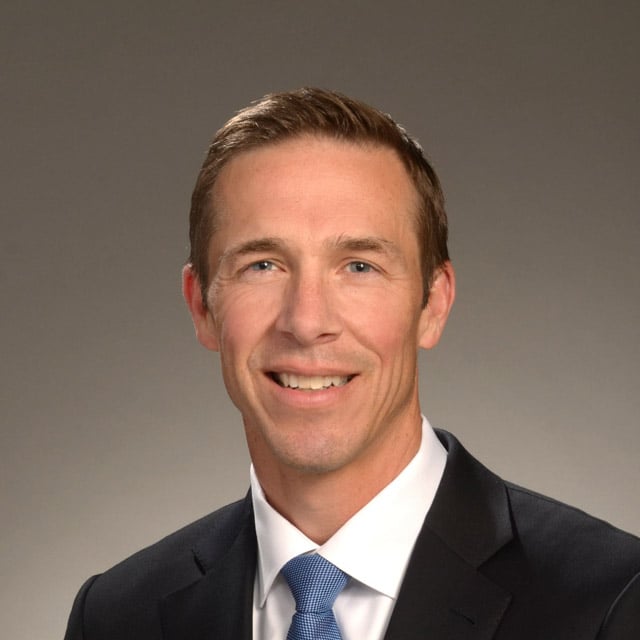Falcon
NOT FOR REPRINT
Top Advice From Industry Execs, RIAs at TD Ameritrade's LINC 2020
By
Jeff Berman
News February 24, 2020 at 12:00 PM
Share & Print
Executives from Omaha, Nebraska-based Carson Group used TD Ameritrade's National LINC 2020 conference (held in Orlando in late January) to share tips with RIAs on what they can do to maximize value and transform their firms' futures. It's important to "not only deliver value" to clients but to communicate that value to them, Michael David, managing director, partner and wealth advisor at the firm's Carson Wealth division, said during a conference session. Pointing to an 80-year-old client of his who asks to see a statement of advisor fees each quarter, David said, "if you're adding value then you can defend" those fees, but "if you're not adding value," you stand to lose the client. What advisors need to keep in mind also is that the "most important thing is the client experience," so they should make sure they're providing "differentiated value" for them, according to Teri Shepherd, Carson Group president. Similarly, Tom Ruggie, president of Central Florida-based RIA Ruggie Wealth Management, which joined Carson Group last year with $566 million in assets, warned advisors: "If you're not creating value for your clients, you're not going to keep your clients," especially as the industry "continues to move more and more towards commoditization." Ruggie tries to focus 60–80% of his time working on three key areas that "I'm most passionate about," he said. "Those three areas also happen to be areas that are important to build business value for me," Ruggie said, noting they include: meeting with his top clients and top prospective clients; doing fun and entertaining things with top clients; and mentoring other advisors. Another topic discussed by the panelists was the industry's continued consolidation. "We've all been talking about consolidation in the industry for a long time," Shepherd pointed out. She also asked: "What are we really doing to prepare for it? And how can we help advisors when that happens and to be prepared for it?" One thing that's in the best interest of firms amid consolidation is owning their data, Shepherd addded. A "huge benefit to having a data warehouse and data is being able to apply artificial intelligence in the future," said Ron Carson, founder and CEO of Carson Group. The "biggest risk" to an advisor's clients "always has been and always will be" making the wrong investment at the wrong time, he pointed out. Using AI can help an advisor better serve clients because the technology makes it possible for customers to get 24-hour "proactive" service, he said, predicting this capability will be a "game changer in our profession." The growing importance of fintech in the advisor sector is a sign of just how much the industry is changing. With that in mind, David told advisors they don't have to necessarily be proponents of change, "but you better be an agent of change." David also encouraged advisors to invest in the younger generation, because "less than 5% of our industry is millennial and that's just a massive problem." One clear sign of that problem, according to Carson is: "We have more advisors over the age of 80 than under the age of 30 today." Tech for Tech's Sake Doesn't Help There are many technology options available today for independent RIA firms to pick from, but not all of those options are right for each organization, according to fintech and RIA experts who spoke at TD Ameritrade's National LINC 2020 conference. Panel moderator Joel Bruckenstein, president of Technology Tools for Today, raised concerns about the ongoing wave of industry consolidation and what it could mean for innovation. "Technology for technology's sake is no good to anyone," said Shannon Spotswood, president of RFG Advisory, a hybrid RIA that started in 2003. "It is not going to provide any efficiency, [and] it is not going to give your clients a differentiated experience." Spotswood pointed to a decision she made several years ago to rebuild her firm "from the ground floor up." While doing so, her firm had to define "who are we as a company" and "what are our values," she explained. The group decided the firm was a "service company first, we're a technology company second, and we're an RIA third." She noted: "The order of those was so incredibly important." This is pretty much what each RIA firm needs to figure out before selecting the right technology to help run its practice, she told attendees: Figure out what the company's values are and "how you are going to be an ambassador" for the technology you decide to use, she said. It's important to have a "mindset that you're going to drive the success and the profitability of your firm by leveraging technology to create a really differentiated client experience," Spotswood explained. Whether an RIA is large or small, when searching for the right tech, "You really have to start with a purpose" and decide "what are you working towards, and then work backwards," Carson's Shepherd said. "Technology has to enhance your experience, [and] it has to enhance and improve your efficiency. So you have to start with knowing where you're going," she explained. "You really have to start thinking with the end in mind and make sure that you're not just thinking about technology," because it's "just a piece that helps you get there." Although technology has significantly improved over the past decade and "We've really made some great strides, … it still seems to be something that a lot of folks in the audience struggle with," according to Bruckenstein. "Whenever advisors think about making a technology decision, they're always a little bit nervous about it," he went on to say. After all, what happens if they end up making a bad decision? Mistakes are bound to happen "when you blow up a firm and you build 2.0" of that firm, Heather Fortner, a partner, chief compliance officer and chief operating officer at Atlanta-based wealth management RIA SignatureFD, pointed out. But Fortner said her company learned a lot from the experience. For one thing, it's become "obsessive about whiteboarding" new ideas designed to address problems it's trying to solve, she noted, adding it's also important to have input from all the key players within the organization. If you do those things, it's more likely you'll be able to spot what any potential weaknesses are and what issues not only your firm, but those partnering with it, may run into, Fortner explained. In addition to having to cover the costs involved with technology, RIA firms face another challenge: Although there are a lot of universities and programs that teach people how to become advisors, "There's really no training ground to create great back-office people and operations people," Bruckenstein pointed out. That's "very frustrating," he said, noting that, after all, "we're more and more dependent on" those types of experts; "it's something, as an industry, we should probably spend a little more energy on." An additional cause for concern is the continued consolidation of fintech players. Although panelists were mostly upbeat about the industry's level of acquisitions, Bruckenstein said that for each one that worked out well, he could point to one that didn't. Some large firms just buy smaller ones to kill off the competition. But, in other cases, the cultures of firms that have been bought "changed significantly, … so that worries me," he said. As for Schwab's planned purchase of TD Ameritrade, Bruckenstein said: "If some of the TD technology were to go away, it would be a lot more disruptive to your firms than you are admitting to yourselves. … Because everything from the way they buy and sell to the way their workflows are — they're not the same. And so, your back-office ninjas are going to have to learn some new skill sets. And that's going to be disruptive and it's going to take time." What is "most worrisome" to him, however, is the "openness TD has to those bleeding-edge vendors," he said, expressing concern that there may be a stifling of industry innovation among startups. Nally's Thoughts Although the merger between Charles Schwab and TD Ameritrade still is expected to close in the second half of this year, integration between the two companies could take two to three years to complete, according to TD Ameritrade Institutional President Tom Nally. "This is a large deal and combining these two firms is going to take time — especially if you want to do it right, and that's what we're focused on," he told more than 3,200 RIAs and others attending TD Ameritrade's National LINC 2020 conference in Orlando, Florida, in late January. "We're playing the long game," he said, adding: "We're not looking to put quick wins up on the board. We're looking to be very thoughtful and very methodical about how we do this to bring both of these organizations together." Nally anticipates Schwab's acquisition to close in the second half of this year, despite the close scrutiny the deal is getting from the government, he told attendees. The executive points to a recent 8-K filing with the Securities and Exchange Commission made by TD Ameritrade that disclosed the companies each received a request for additional information and documentary material from the Antitrust Division of the Department of Justice. "This is not a surprise to us," he said of the second request. "We knew that this was highly likely, but we don't anticipate that it's going to slow the deal down from ultimately closing in the second half of this year." After all, it's common for the DOJ to "really do their homework" and request additional information about a major deal of this size, especially because this is the "first time the DOJ is actually examining our industry," so their investigators have to learn how the industry functions, Nally said. "For the time being, we're continuing to operate business as usual," he noted. Even after the deal closes, however, we're "looking at probably another two to three years before the full integration actually takes place. "Until then, we fully intend to remain a company that you want to work with, a company that you can trust with your clients, with your assets and with your business," Nally added. Meanwhile, TD Ameritrade is "not slowing down" — it's "continuing full steam ahead, with all of our efforts to help you deliver the best experience to your clients," he told the crowd of RIAs. When it comes to many of the big questions surrounding the merger, the firm itself doesn't "have a lot of answers because we're so early in the game here," Nally said. "Integration planning is really just beginning [and] we haven't been able to make any key decisions yet or even start to do the analysis around the decisions" that need to be made, he noted. Fate of Veo One "We are certainly sensitive to concerns around service disruption," Nally explained, but promised the two companies are "equally committed to a smooth transition — we do want to get it done right." At the present time, "we don't know" the fate of TD's Veo One next-generation advisor platform after the merger is completed, he conceded. But, the company is continuing to invest in its technology platforms and "working on what we believe will be the best path forward," Nally said. One thing that's certain, however, is that the legacy Veo platform has served the firm well, but it's 15 years old and does "need to be retired," he said. The firm told advisors it will complete the process of upgrading all firms to Veo One and, "to make the transition as smooth as possible, advisors will make the move to the next-generation platform in waves over the coming year." That breathing room will give advisors time to become more familiar with Veo One's features, functionality and improved ease of use, according to TD Ameritrade. Based on feedback from advisors, Veo One alerts have been enhanced with several new features that the company said makes it easier to group, sort, filter and export alerts. TD helped streamline and simplify the process of creating and submitting a management fee invoice for processing, while the Veo One Message Center has been "upgraded to leverage newer technologies for an improved user experience," the company said. This summer, the firm plans to introduce a new digital marketing dashboard that will help advisors measure and improve the effectiveness of their web presence and social media activity. No Repapering Required One piece of good news that drew applause from the audience was Nally's announcement that "for the vast majority of accounts, you will not have to repaper" as a result of the merger. Noting that he's been through about eight deals with TD Ameritrade, the executive said he has never seen the firm having to repaper, because "everything gets done through negative consent." The company is "going to try and do as much of this as we possibly can electronically, so we don't have to stuff your clients' mailboxes with paper," although it would be helpful if advisors could get their clients to sign up for digital document delivery, he told those at the conference. In addition, Nally also took the opportunity to point to continued RIA growth across the industry, noting that RIA assets tripled in the past 10 years, supported by S&P 500 growth. According to the new TD Ameritrade Institutional 2020 Break Away to Independence Survey, 55% of potential breakaway brokers — those at national, regional firms or independent broker-dealers considering a move to independence within three years — indicated they will make their move within the next 12 months. That's up 11 percentage points from the 44% who expressed the same sentiment in the spring 2019 survey, the company said. Also, 47% said they felt even more strongly about becoming independent now than they did last spring.
NOT FOR REPRINT
© Touchpoint Markets, All Rights Reserved. Request academic re-use from www.copyright.com. All other uses, submit a request to [email protected]. For more inforrmation visit Asset & Logo Licensing.
Featured Resources
View All
Sponsored by Axos Advisor Services
Integrated Banking Solutions: How To Enhance Client Services and Grow Your Business

Sponsored by Optifino
Three Macro Trends Impacting Long-Term Care: Trends, Solutions & Client Conversations

Sponsored by Vanilla
The Missing Piece: Why Advisors Who Skip Estate Planning are Failing Their Clients







